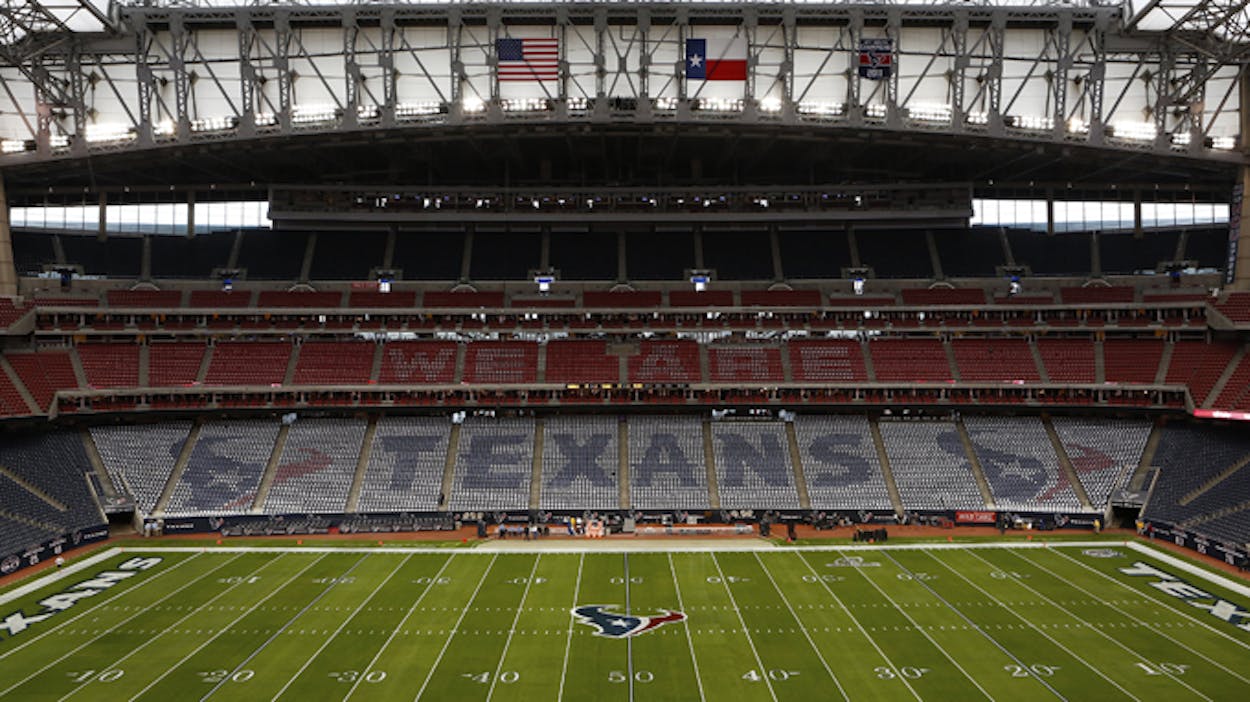Touchdown for H-Town
NFL officials this week voted to bring the Super Bowl back to Houston in 2017, citing the city’s cultural diversity as a key factor in the decision. Houston—which last hosted the game in 2004—beat out Miami, whose bid was derailed when Florida lawmakers shot down a proposal to fund renovations of Sun Life Stadium, ESPN reports. NFL team owners selected the San Francisco 49ers’ home stadium in Santa Clara, Calif., to host the 50th Super Bowl in 2016.
A number of major projects are already in the works to prepare for the influx of visitors. The Houston Chronicle reports the city will rebuild its convention center, upgrade its public transportation system, and greenlight development of hotels downtown. The Discovery Green area will be a focal point in a 10-day celebration leading up to game day, and organizers plan to install a Space Needle-esque tower and a “rocket ship ride” in the park, according to CultureMap.
The Bottom Line: Houston’s Hispanic culture was a big selling point in the bidding process, as the league is making efforts to attract more Latino fans, the Chronicle reports. And rather than going by the traditional “Super Bowl Center” moniker, Discovery Green will officially be dubbed “Super Bowl El Centro.”
Mac Maker, Mac Maker
Apple CEO Tim Cook announced Tuesday that the company will invest at least $100 million to manufacture computers in Texas starting sometime this year. Speaking before a Senate subcommittee in Washington, Cook said the Macs will “include components made in Illinois and Florida, and rely on equipment produced in Kentucky and Michigan.”
The company hasn’t revealed specifics on the location of the plant, but the blog All Things D reports Apple could contract production out to its manufacturing partner Foxconn, which “operates plants in Texas and has long handled a lot of Apple’s hardware production and assembly.”
The Bottom Line: Cook said back in December that the company would ramp up its American manufacturing operations for one of its unspecified Mac lines. Mashable speculated that “the iMac line is a safe bet” for production in Texas because some units in the latest generation of iMacs were assembled in the U.S.
Beam Meat Up, Scotty
NASA has selected an Austin company to develop a 3-D printer that can produce food for astronauts on long-term space missions, the Washington Post reported this week. The device, proposed by Systems and Materials Research Corp., would follow a “digital recipe” to blend powdered ingredients with water and oil, and then render them as food such as pizza that looks and smells like the real thing.
NASA is pursuing the project because existing food products don’t stay fresh enough to sustain crews on years-long expeditions, such as future voyages to Mars and other remote destinations, according to the Post. SMRC hopes to complete a prototype of the printer by the end of the year.
The Bottom Line: While we may be a few decades away from a manned Mars mission, the technology “could also be used to feed hungry populations here on Earth … by eliminating waste and making it easier to store and transport nutritional ingredients,” the Post reports.
Winner of the Week: Zale Corp.
Irving-based jewelry retailer Zale Corp. reported an unexpectedly profitable third quarter this week, notching a net income of $5.1 million and beating Wall Street revenue forecasts by nearly $3 million, Businessweek reports. In the same quarter last year, the company reported a $4.5 million loss in net income. Zale was able to cut interest expenses by more than 40 percent by refinancing its debt, which analysts say was the key factor behind the turnaround.
Loser of the Week: Emerging Technology Fund
The Texas Emerging Technology Fund, a perennial target for cuts during budget season, will be allocated $50 million to operate for the next two years—about $20 million less than Gov. Rick Perry requested at the start of the legislative session, according to the Austin American-Statesman.
The fund, which issues grants to early-stage tech companies and university research initiatives, is also caught up in a dispute over who should be in charge of approving awards. A House-approved bill that would have put that power in the hands of a new 15-member board was axed from the Senate agenda this week by Lt. Gov. David Dewhurst, who, along with Perry and House Speaker Joe Straus, currently has the final say in awarding grants.








